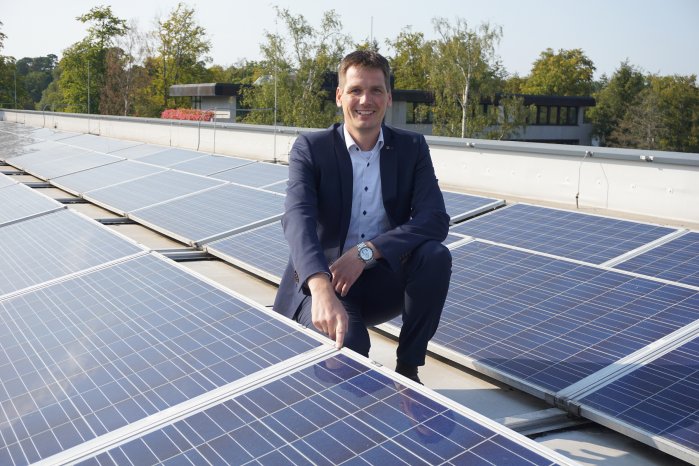The European environmental management system EMAS (Eco-Management and Audit Scheme) enables companies to use resources intelligently. EMAS, however, means a great deal more than that: organisations commit themselves to improving their environmental performance, thereby making an effective contribution to environmental protection while saving costs at the same time. EMAS ensures that all environmental aspects - from energy consumption to waste and emissions - are implemented in a legally compliant and transparent manner.
In 1995, the technology group carried out its first environmental audit as one of the first EMAS companies to do so. Only one year later, HARTING was validated according to the requirements of the EMAS I environmental management system. Today, the company has validated six different locations in Espelkamp, Rahden and Minden. A total of 16 national and international companies are certified according to the requirements of DIN EN ISO 14001:2015 environmental management.
Environmentally compatible corporate philosophy
HARTNG's environmentally friendly corporate philosophy is rooted in a long tradition. As early as 1975, the then head of the company, Dietmar Harting, had a central ion exchanger installed, enabling the recycling of used rinsing water from the electroplating shop. In 1992, all HARTING production facilities were CFC-free.
HARTING started to convert its energy sources to regenerative energies in 2012 and already sources 100% regenerative energy at all locations in Germany. "HARTING has switched its gas procurement for heating from conventional natural gas to the more climate-friendly and regional biomethane from Uchte," as Dr. Stephan Middelkamp, Head of the Central Quality and Technologies Department explains. To this end, Dietmar Harting built a biomethane plant (3,5 MW) in Uchte for the Technology Group, acting true to the motto: In the region for the region.
The technology group operates four 4 combined heat and power plants harnessing biomethane, three of which have been upgraded to combined heat, power and cooling (CHCP) plants. This means that the thermal energy generated can also be converted into cooling, enabling HARTING to achieve a 20 % increase in energy efficiency.
In the construction of the European Distribution Center (EDC) logistics centre, HARTING undercut the strict requirements of the Kreditanstalt für Wiederaufbau (KFW 55) by a further 27 %. This was made possible by intelligent energy management and energy supply tapping geothermal energy and a photovoltaic system on the roof.


